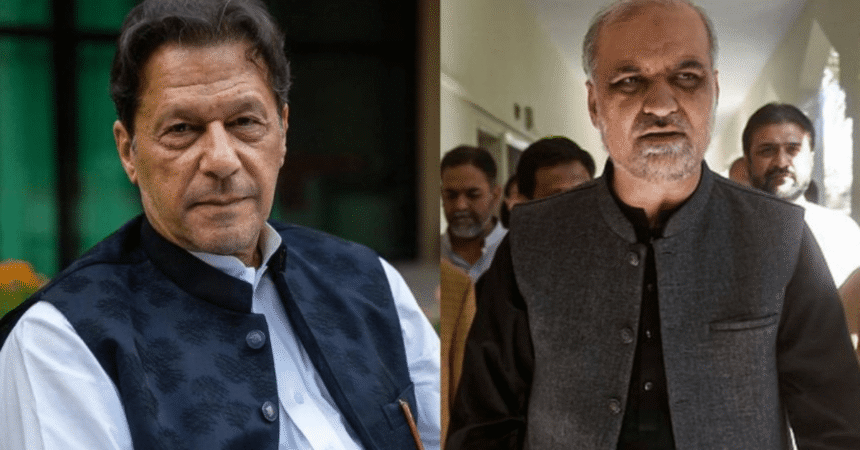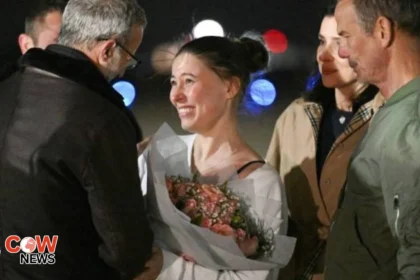In the intricate web of Pakistani politics, strategic alliances are not merely advantageous; they are often essential for survival and success. Recently, the Pakistan Tehreek-e-Insaf (PTI) and the federal government have escalated their engagement with Jamaat-e-Islami (JI), marking a critical juncture in the nation’s political landscape. Former president Dr. Arif Alvi is set to meet with JI leaders in Mansoora, while a government delegation is also scheduled to engage with JI shortly. This article delves into the historical context, current dynamics, and potential implications of these developments.
Historical Context of PTI and Jamaat-e-Islami
To fully appreciate the current political maneuverings, it’s essential to consider the historical backgrounds of PTI and JI. PTI, founded by Imran Khan in 1996, initially struggled to make a significant impact. However, the party gained momentum in the early 2010s, capitalizing on public disillusionment with traditional political parties like the Pakistan Muslim League-Nawaz (PML-N) and the Pakistan Peoples Party (PPP). With a platform centered on anti-corruption and economic reform, PTI resonated with a younger electorate looking for change.
Jamaat-e-Islami, established in 1941, has played a significant role in Pakistan’s political and ideological discourse. The party promotes an Islamic framework for governance and has a well-organized grassroots network. JI has historically positioned itself as a counterbalance to both secular and religiously moderate parties, advocating for Islamic values in policy-making.
The relationship between PTI and JI has been complex, oscillating between cooperation and rivalry depending on the political climate. In recent years, as both parties have faced challenges from the ruling coalition, their potential for collaboration has increased.
The Current Political Landscape
Pakistan’s political arena is characterized by fragmentation and volatility. The economic crisis, exacerbated by inflation and poor governance, has led to widespread public dissatisfaction. The situation has created an environment where political parties must forge alliances to remain relevant.
After the ousting of Imran Khan’s government in April 2022, PTI found itself in a precarious position, navigating the challenges of opposition while maintaining its base. Meanwhile, the federal government, composed of a coalition led by PML-N and PPP, has sought to stabilize its rule amidst economic turmoil and rising dissent.
In this context, both PTI and the federal government recognize the strategic value of engaging with JI. By aligning with JI, PTI can reinforce its narrative against the current government, while the government can seek to co-opt JI’s support to bolster its legitimacy and public approval.
Objectives of the Meetings
The meetings between PTI and JI, as well as between the federal government and JI, aim to achieve several key objectives:
1. Addressing Shared Concerns
Both PTI and the government are keen to address pressing national issues, including economic instability and social justice. Engaging with JI allows them to present a united front on these issues, which resonate with a broad segment of the electorate. By collaborating on policies aimed at economic reform and social welfare, they can enhance their appeal to voters who are increasingly frustrated with the status quo.
2. Strategic Positioning Against Opposition
For PTI, aligning with JI serves as a tactical move to counter the narrative established by the ruling coalition. By showcasing a collaboration with JI, PTI can project strength and unity in the face of government policies that have been criticized for failing to address the needs of the populace. This positioning is crucial for PTI as it seeks to galvanize support and maintain relevance in the political discourse.
3. Mobilizing Grassroots Support
JI possesses a robust grassroots organization that can mobilize voters effectively. By collaborating with JI, PTI can tap into this network, expanding its reach and influence. Similarly, the government sees value in co-opting JI’s support to enhance its legitimacy and reduce the impact of opposition narratives.
4. Legitimizing Policies
For the federal government, engaging with JI could help legitimize its policies, particularly those that face public scrutiny. By presenting itself as open to dialogue with influential parties, the government can bolster its image and demonstrate a commitment to inclusivity in policymaking.
5. Exploring Future Alliances
These meetings may serve as a precursor to more formal alliances. Both PTI and the government could be looking at JI as a potential partner for coalition-building in future elections. Given JI’s influence and organizational capacity, such alliances could significantly alter the electoral landscape.
Potential Challenges
While the prospects of collaboration between PTI, the federal government, and JI are intriguing, several challenges could impede the success of these engagements:
1. Ideological Differences
Despite the potential for strategic alliances, the ideological differences between PTI, JI, and the federal government present significant hurdles. Each party has distinct visions for Pakistan’s future, and reconciling these differences may prove to be a daunting task. PTI’s emphasis on modernity and reform may not fully align with JI’s more traditionalist approach, complicating the potential for a cohesive strategy.
2. Public Perception
Public perception plays a crucial role in the success of any political alliance. If voters perceive the engagement between PTI, the government, and JI as opportunistic or lacking genuine intent, it could lead to backlash. Transparency in intentions and clear communication of shared goals will be vital to overcoming this challenge.
3. Internal Party Dynamics
Internal dissent within PTI and the government regarding collaboration with JI could create friction. Each party must navigate its internal politics and ensure a unified approach to maximize the effectiveness of these engagements. Diverging opinions among party members could weaken the overall impact of their collaboration.
4. Political Rivalries
The competitive nature of Pakistani politics means that any collaboration could provoke increased rivalry with other political entities, particularly with PML-N and PPP. These parties are likely to capitalize on any perceived weaknesses in the alliances, framing them as desperate attempts to cling to power.
The Role of Social Media and Public Sentiment
In today’s digital age, social media plays a significant role in shaping political narratives and public sentiment. Both PTI and the federal government must navigate the complexities of online discourse as they engage with JI. The ability to effectively communicate their intentions and garner support through social media platforms could be a game-changer.
Public sentiment is particularly volatile in Pakistan, driven by issues such as economic hardship, inflation, and governance failures. The ability to address these concerns through effective communication and outreach will be crucial for any political alliance.
Harnessing the Power of Youth
With a significant portion of Pakistan’s population comprising youth, political parties must tailor their strategies to resonate with younger voters. This demographic is more likely to be active on social media and engaged in political discourse. Both PTI and the federal government must focus on youth-centric policies and engage with this demographic to maximize their appeal.
Potential Outcomes of the Meetings
The outcomes of the meetings between PTI, the federal government, and JI could lead to several potential scenarios:
1. Formalized Alliances
If the meetings yield positive results, we could see the establishment of formal alliances between these parties. Such alliances could significantly alter the political landscape, impacting electoral outcomes and governance strategies.
2. Increased Collaboration on Key Issues
Even in the absence of formal alliances, increased collaboration on key issues could emerge. Joint efforts to address economic challenges, social welfare, and governance reforms could enhance the effectiveness of both PTI and the government in addressing public concerns.
3. Heightened Political Rivalry
If the meetings fail to yield meaningful cooperation, it could lead to heightened political rivalry and polarization. The opposition could leverage any perceived failures to further discredit both PTI and the federal government, complicating their respective positions.
4. Public Backlash
If the public perceives the alliances as insincere or politically motivated, it could lead to backlash against all parties involved. Maintaining transparency and demonstrating genuine intent will be vital in mitigating this risk.
The Broader Implications for Pakistani Politics
The interactions between PTI, the federal government, and JI could have broader implications for the political landscape in Pakistan. As these parties navigate their relationships, the potential for coalition-building could reshape the dynamics of power, influencing both policy outcomes and electoral strategies.
1. Reshaping Political Alliances
The potential for new alliances could signal a shift in how political entities engage with one another. As parties seek to navigate the challenges of governance and public dissatisfaction, the willingness to collaborate may become more pronounced.
2. Voter Behavior and Electoral Dynamics
The outcomes of these meetings could significantly influence voter behavior in upcoming elections. A successful collaboration could energize support for PTI and JI, while failures may disillusion voters and alter their allegiances.
3. Impact on Governance
Collaboration among these parties could lead to more effective governance, particularly if they focus on addressing pressing national issues. Conversely, a failure to cooperate could exacerbate existing governance challenges and deepen public discontent.
Conclusion
The current political landscape in Pakistan is fraught with challenges, making strategic alliances increasingly essential for political survival and success. The ongoing engagement between PTI, the federal government, and Jamaat-e-Islami marks a significant moment in this landscape. As these parties navigate their relationships, the outcomes will not only shape their futures but also influence the broader trajectory of Pakistani politics.
In an environment where political fortunes can shift rapidly, the ability to forge meaningful alliances could prove crucial. As the nation grapples with economic instability and governance challenges, the collaboration between PTI and JI may emerge as a defining factor in shaping the future of Pakistan.
#PakistanPolitics #PTI #JamaatEI #PoliticalAlliances #ImranKhan #PoliticalStrategy #CoalitionBuilding #Governance #PublicSentiment #PoliticalDynamics







